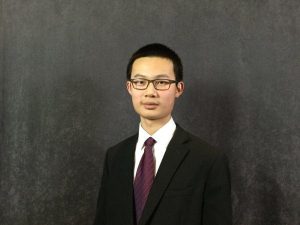Every year, the American Society of Agricultural and Biological Engineers (ASABE) hosts the ASABE Annual International Meeting (AIM), and students worldwide compete. Five Iowa State University (ISU) students won awards in three out of seven categories this year. ISU Agricultural and Biosystems Engineering (ABE) graduate students Baiton Chen, Peiyang Li and Ryan Jeon were the only awardees in one entire category – plant and animal facilities systems.
Darcy Bonds, a junior in the Department of Horticulture, won an award in the natural resources and environmental systems category. Gabriel Johnson, a graduate student in the Department of Natural Resource Ecology and Management, won an award in the machinery systems category.
All five students jumped through many hoops to receive their awards. The students had to complete a paper, submit the paper, attend the event and present to be eligible for an award.

Bonds, an undergraduate that won an award in a conference full of primarily graduate students, was caught by surprise upon receiving the notification email. Bonds had been investigating the interactions between soil smell and soil health, trying to make it more accessible for people to understand a soil’s properties and health based on its smell.
“I was not expecting it – I saw the email and didn’t believe it at first,” Bonds said. “I think to myself, ‘what would 10 year old me say?’ Looking at me now, publishing papers and now with an award, I think it’s pretty amazing.”

This conference gave students the opportunity to present their research and be recognized personally while allowing their research to gain recognition in the community, too.
“It is really important to me to help the swine industry since, as a small part of a research team, I can,” said Li, who is studying how to reduce a deadly swine virus from the industry using Ultraviolet C (UVC) light. “I want to help the swine industry using my knowledge and expertise, so I think it is important for other people to know about the research we are doing. Presenting at the conference allows me to expand the knowledge about our research at a larger scale.”

A common theme for students who received awards in the conference is improving the lives of the environment, livestock, and the general public with their research.
“When coupled with some fancy hardware and a neat software package, I think research in my field points to automated systems that lead to improvements in areas such as livestock transportation, biosecurity monitoring, yield estimation, or animal welfare, all of which are important issues not only for “agvocates” but also for the general public.” Jeon, whose presentation was on automated visual angle measurements in gilt selection, said.
Each award received by students consists of a cash prize of $250 and a certificate.
